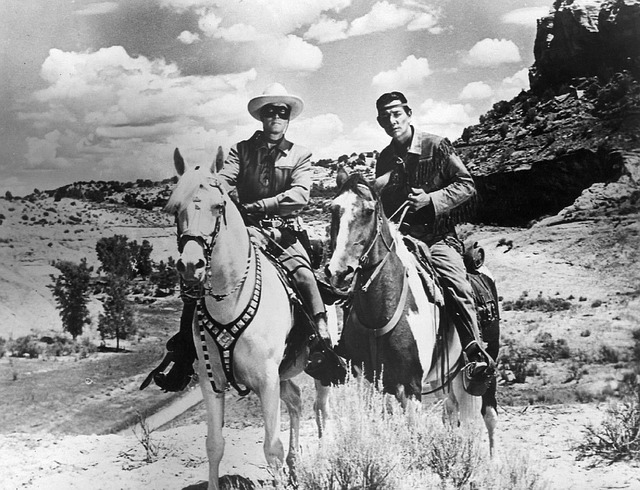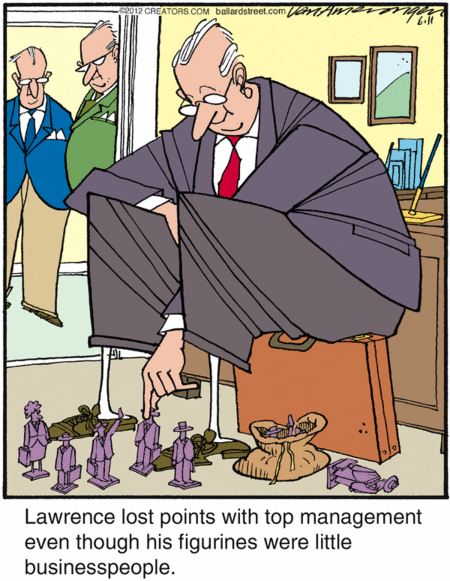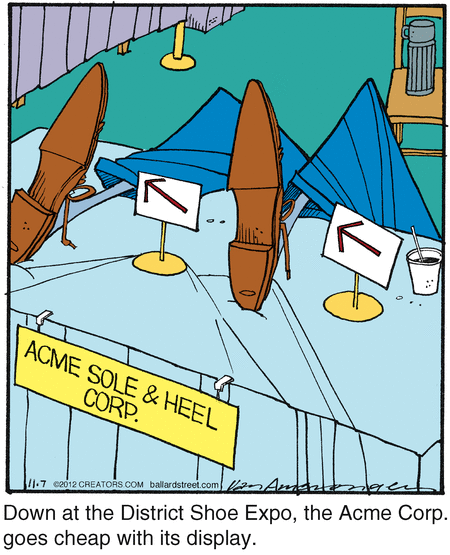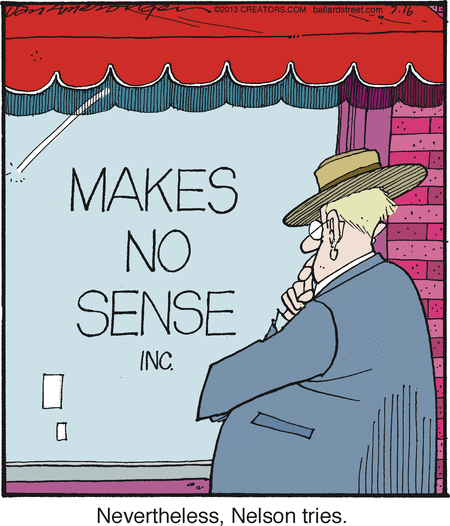237 Those Who Help Leaders Lead
Podcast: Play in new window | Download ()
Subscribe: Apple Podcasts | Spotify | RSS | More

The Lone Ranger had Tonto. Johnny had Ed. Tom Petty has Mike Campbell.
Leaders need supporters to help them lead. I’m not talking about followers. I’m talking about the #1 follower. That someone special who the leader can’t do without. That person whose identity is so joined to the leader that they’re considered more like a team.
Inseparable really. The Lone Ranger needed Tonto. Johnny needed Ed and I’m a rabid Heartbreakers’ fan, unable to imagine Tom Petty without Mike. These are special partnerships where the two people aren’t equal – one is clearly in a position of leadership – but their work together excels in ways neither of them would otherwise realize. They both know they need each other. And they serve and support each other.
Effective leaders need a right-hand person who will provide superior support and feedback. It’s not a role just anybody can fill. It takes a special breed of person to give of themselves in a way to help somebody else.
Ego and envy usually get in the way. People can find it difficult to give of themselves so fully as to support somebody else’s success. But that’s exactly what must happen if you’re going to be a remarkable #2.
“I’m not gonna invest my career in him,” he tells me. The conversation had centered around taking responsibility for one’s career, something I think we should all do. But I’m sitting here wondering if I’ve been misunderstood.
“You have to invest in people though,” I exclaim. “Do you disagree?”
“Depends on how you define invest, I suppose,” he says.
What ensues is a long discussion about the limits of service and how that may impact our lives and our careers. We talk about rebellion, going your own way, carving out a path all your own and hoards of other idyllic philosophies. So I try to bring things back to the real world of figuring out who we are, what we are and how we can make the most of it.
My conversation partner is not a #1 guy. He’s a #2 guy, but he’s not a very good #2 guy. I know he’s not highly regarded by some in the organization. He doesn’t lack self-esteem. He lacks self-awareness.
I’ve encountered considerable self-absorption through the years. Plenty of people are delusional about their work, their careers and how others perceive them.
So I aim the discussion toward reputation management, something my conversation partner isn’t too keen on. He doesn’t think it’s necessary. He thinks it’s so much drivel that isn’t his problem, but somebody else’s.
I ask, “Do think I’m invested in you?” He looks at me, then peers around the room. Now I’ve spent hours with this guy. I’ve had more private conversations with his superiors than he’s even aware of. This isn’t my first rodeo and I can easily spot a person who brings value to the organization. This guy brings value. Unfortunately, he doesn’t bring enough. Yet. He can. He’s just resisting jumping higher to be part of the solutions. Too often he’s part of the problem and my job is to help him see it, explore ways to find solutions and to persuade him that he’s serving himself best when he’s serving those above him.
“I’m not sure,” he finally answers. I tell him that I think that’s fair, but I try to reassure him (I’ve assured him every single time we’ve talked) that I’m only here to serve him by helping him.
The conversation continues with much advancement. I leave feeling empty and sad. His bravado and outward confidence isn’t serving him well. I see the future and it’s not wonderful. So I leave wondering if I can do anything to convince him that his aspirations for top dog leadership are being stymied by his own arrogance. Early on I knew he was one of those “I’m the smartest guy in the room” people. He still is, even when his boss is in the room. Maybe especially when his boss is in the room.
Days later the boss wants to know, “How did you meeting with _________ go?”
I’m not going to lie. Or fluff it up. “Not very well,” I report. “I’m sorry that I’m not yet able to reach him because I know the value he can bring, but I also know the hurdles he presents. What are you seeing?”
The boss answers me. “I”m seeing some subtle things change. I suspect he’s learning more than you may think.”
He continues, “Don’t sweat it. He’s gonna have to decide for himself what he’s going to do.”
The boss sounds resigned. And I get it. He’s been looking for a solid #2 for a few years. He’s invested a lot of time and effort into this guy. Hoping he’d be the one. The guy’s got all the skills necessary, but he’s just more trouble than he’s worth on more days than not. And I knew the boss was tired of it when I first arrived. It’s what brought me the party. My job was to a) find out if the guy could adjust and adapt, b) provide him the tools necessary to be a capable #2 and c) help the boss learn some techniques to help the process. Along the way we’ve accomplished some pretty important stuff. The boss is pleased with my efforts. I knew he would be. I work hard. Nobody is going to try harder. I’m going to make sure of it. But I’m empty. Lost in how to help a person see what the rest of us think should be obvious.
“I just don’t care any more. I know what I’ve got to do,” says the boss. “I’m sorry,” I say.
“Don’t be. You’ve said it yourself. You can lead a horse to water, but you can’t make him drink. Maybe we’ve got a jackass on our hands anyway.” He laughs. So do I.
“You know I’m not going to try to embed myself ’cause that’s not how I roll, but I’m perfectly willing to try whatever you feel might help.” I’m tough minded and I hate to lose. But I know I’m not in control of how somebody else lives their life.
“Let’s keep our work going,” he says. “What we’re doing together is important, but I don’t want you wasting any more time on him. I’d rather benefit from your insight myself.”
 And so it goes. A man with an opportunity to be a dynamite #2 is sooner or later going to be somebody somewhere else. He won’t likely be a #2. Or #3. All for the lack of seeing how his own career might benefit from hoisting up his boss with superior support and service. He just can’t bring himself to be Tonto, or Ed or Mike Campbell.
And so it goes. A man with an opportunity to be a dynamite #2 is sooner or later going to be somebody somewhere else. He won’t likely be a #2. Or #3. All for the lack of seeing how his own career might benefit from hoisting up his boss with superior support and service. He just can’t bring himself to be Tonto, or Ed or Mike Campbell.
Lately I’ve been listening to the new Tom Petty & The Heartbreakers‘ record, Hypnotic Eye. I’ve seen this band live a few times. I bought the first record in 1976. Almost 40 years ago. Mike Campbell has been there every step of the way. And I wonder how differently thing might have turned out had Tom and Mike not stuck together. I wonder what might have happened if Mike couldn’t have withstood Tom being in the spotlight. Thankfully, for fans like me, the two of them realized they had something special and significant together that neither of them would have alone.
Could Tom have succeeded without Mike? Vice versa. Sure. They’re both talented guys. But we wouldn’t have Tom Petty & The Heartbreakers. What a loss!
The band returned to their hometown of Gainsville, Florida back on October 28, 2008. It was their famous 30th anniversary show which was part of a documentary about them done by Peter Bogdanovich. During that show Tom introduced Mike as “the co-captain.” I bought the DVD when it came out and remember thinking when I heard Tom say that, “I’m sure glad Mike is cool with that.” And why shouldn’t he be? What a terrific musical career they’ve had together. Something remarkable!
Can you imagine the Rolling Stones without Mick and Keith together? Me neither. That’s how these things can go when people put something bigger ahead of themselves. Easier said than done for some. Maybe most even.
We can’t all be #1. Nor can we all be #2. Those are special situations.
For the past few years I’ve concentrated considerable effort in helping people with a strong #2 opportunity see that role and fulfill it. These are the people who can most help leaders lead. It’s an awesome responsibility and gift.
Leaders need a strong #2. The great leaders have them. The mediocre ones don’t. That’s just how it is. Steve Jobs needed Woz. Gates had Ballmer, Microsoft’s first business manager. You can see examples of it everywhere. A leader propelled to higher climes by having the push of a strong c0hort willing to do what must to be done so together they can be remarkable. It’s us. Together. Without concern for who gets the lion share of limelight. Because the work matters. The accomplishment is the thing.
Business. Music. Art. I don’t care what the endeavor is, leaders need those who help them lead. No leader has enough brilliance or anything else to go it alone. Besides, if you’re going it alone you’re not a leader. People follow leaders, not loners.
Maybe the guy or gal who would be a great #2 is born to it like a leader often seems to be. Maybe they emerge instead of being created, or encouraged. Still I try…especially when a leader so desperately wants to help a person reach #2 status.
There are a few qualities that I’m sure can be developed though. So if you’re interested in being a great #2 or in finding one, these tips may help.
1. The respect and admiration for the leader have to be genuine.
Anybody who thinks they can be a strong #2 and constantly criticize or argue with the boss or leader (#1) has already proven themselves unworthy to the task. In every case of successful collaboration between a #1 and #2 there is mutual respect and admiration that runs deep and true. It’s not contrived or fake.
Don’t try to fake it. You’re better off looking for somebody worthy of your true respect and admiration. If you’ve been looking for awhile unsuccessfully, then quit trying to be a good #2. Go ahead and join the herd who thinks they know everything. The masses who will live with discontentment, dissatisfied in being part of a team.
Find a cave. Enter. Stay there. Die there for all I care, but leave the rest of us alone ’cause you don’t contribute to our good effort.
2. The leader is the #1 customer.
We all serve somebody. Most of us serve a lot of people. We have to.
The strong #2 knows the person he serves most in the endeavor. It’s the boss, the leader. If the boss ain’t happy, the #2 works hard to change that. It’s their mission in life.
Like respect and admiration, it’s just an automatic sort of response. There’s no resentment about it. There’s no whining or complaining. It’s just the mission – to remedy the problem for the leader. To contribute. To be part of the solution, never part of the problem.
3. The strong #2 earns inner circle status and knows how to manage that responsibly.
There’s a time for debate and a time to salute an order. The strong #2 knows the difference instinctively. Sometimes the leader needs candid feedback that only the #2 can provide. But other times, the leader needs the #2 to lead the parade in supporting the mission so the troops see the commitment to advance.
Strong #2’s don’t cause the leader any public grief or conflict. They value their inner circle responsibility and remain true to it.

4. Envy and jealousy are replaced by joint participation and joy.
The strong #2 finds joy in the art of serving the highly respected #1. Mike Campbell can’t likely imagine playing lead guitar for anybody other than Tom Petty. And why would he? He’s got a very special relationship with Tom. There’s a joy he can get from playing music with Tom that he couldn’t find anywhere else. It’s not about Tom being the best. It’s about them being the best together!
I’m not bold enough to think strong #2’s never feel any emotions of envy or jealousy, but I know they don’t feel them long enough to act on them. Rather, they deem the work more important. Their sense of accomplishment and joy override any negative emotions that might damage the relationship.
Conclusion
There’s something quite special about being a leader, but there’s also something remarkable about the responsibility and opportunity to be among the top ones who help propel them lead. The entire team is benefited not just by the leader, but the #2. Together, they form a tandem of leadership that drives the success of the enterprise. It’s like double the horsepower to reach an objective that otherwise might be out of reach.
Sometimes the #2 must push. Other times, they have to pull. Whatever it takes to get the job done. It’s about as opposite of the remark I heard, “I’m not going to invest my career in him.” Then find somebody you can invest in because we’ve all got to serve somebody.

Photo of Mike Campbell used with permission of Debi Delgrande
237 Those Who Help Leaders Lead Read More »



 I’m not bashful to ask for the sale, or to encourage people to buy from me if I believe I’ve got just the thing to help them. But I am bashful to be presumptuous and I think you should be, too.
I’m not bashful to ask for the sale, or to encourage people to buy from me if I believe I’ve got just the thing to help them. But I am bashful to be presumptuous and I think you should be, too.






